Our live coverage of Israel's war against Hamas has moved here.
January 7, 2024 Israel-Hamas war
By Heather Chen, Andrew Raine, Sophie Tanno and Antoinette Radford, CNN
Killing of Hamas leader could affect "complicated" hostage negotiations, Qatari Prime Minister says
From CNN’s Mitchell McCluskey
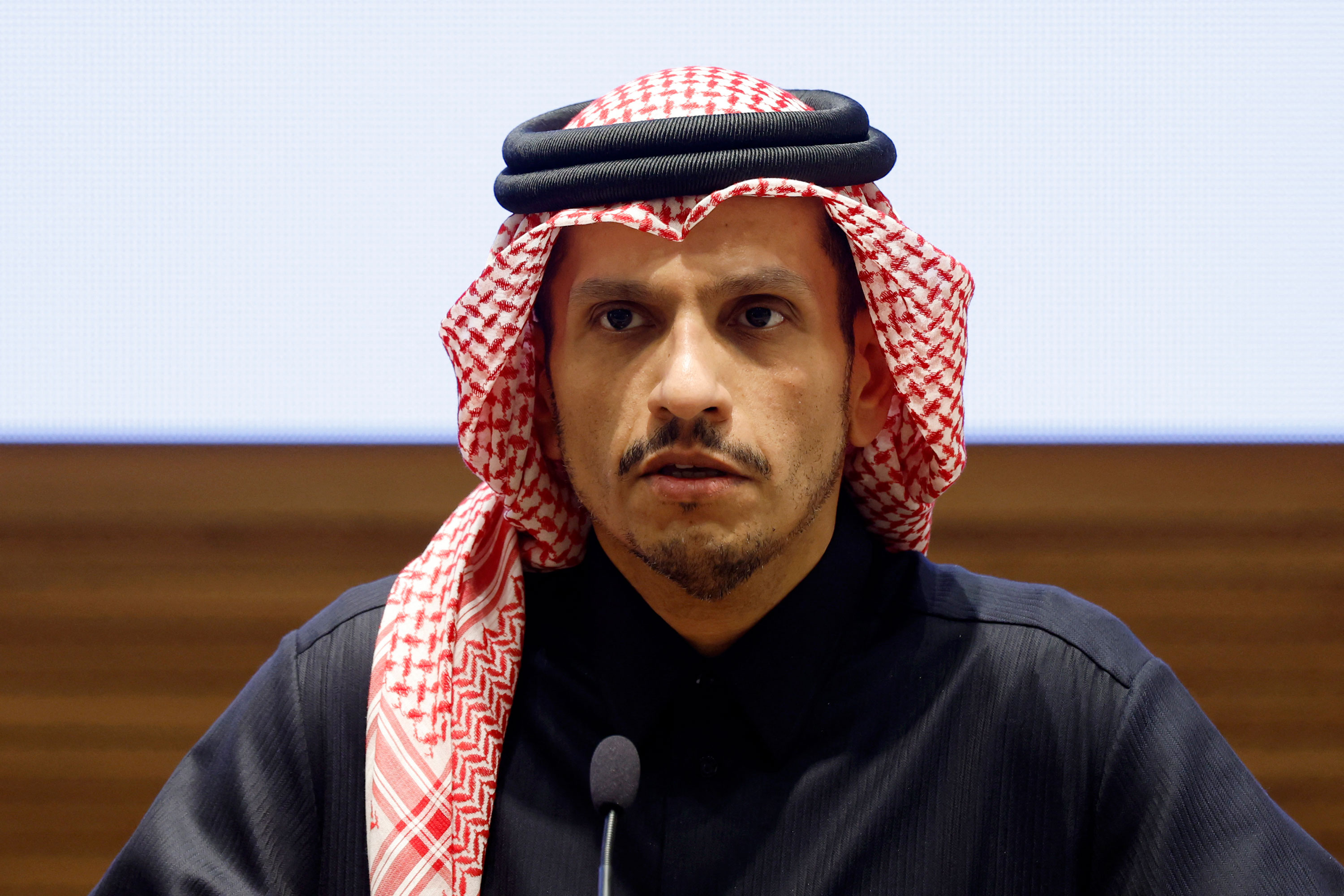
The recent killing of a senior Hamas leader could affect ongoing negotiations to secure the release of hostages held by the militant group in Gaza, Qatar's Prime Minister and Minister of Foreign Affairs Mohammed bin Abdulrahman Al-Thani said.
Israel carried out the strike last Tuesday in Beirut that killed senior Hamas leader Saleh Al-Arouri, a US official previously told CNN. Israel did not claim responsibility.
At a joint news conference in Doha Sunday with US Secretary of State Antony Blinken, Al-Thani was asked whether Arouri's death could impact talks to free the more than 100 hostages believed to still be held in Gaza following the October 7 attacks.
"Of course, having one of the senior leaders of Hamas being killed is something that can affect such a complicated process," Al-Thani said.
Qatar has played a central role in mediating hostage negotiations. And despite the challenges, the negotiation process is continuing, Al-Thani said.
"We are not giving up; we are moving forward. We are continuing our discussions with the parties and trying to achieve as soon as possible an agreement that can bring assistance for humanitarian relief and the release of the hostages," he said.
Medical providers announce withdrawal from central Gaza hospital due to Israeli military activity
From CNN's Mitchell McCluskey
Two medical aid groups on Sunday announced their withdrawal from a central Gaza hospital, citing increased Israeli military activity in the area.
In a statement, the International Rescue Committee said its emergency medical team was "forced to withdraw" from Al Aqsa Hospital in the city of Deir al-Balah after the Israeli military dropped flyers on central Gaza ordering Palestinians to evacuate to "shelters" in the area.
"Given the recent history of attacks on medical staff and facilities in Gaza, the team is unable to return," the IRC said.
The IRC team had provided vital services at the hospital, such as the treatment of trauma injuries, the release said.
“The amount of injuries being brought in over the last few days has been horrific, and with a huge reduction in the number of staff able to come to the hospital there is even less capacity for treating them," said Professor Nick Maynard, a surgeon and clinical lead for the team. "There are patients clearly dying in the emergency department who could be saved if there were enough staff."
CNN is not able to independently confirm this statement.
Medical Aid for Palestinians (MAP) also said it was withdrawing from Al Aqsa hospital. It comes after Doctors Without Borders on Saturday said it would evacuate its staff and their families from the facility.
MAP and the IRC said they were "deeply appalled" their teams had to pull out of the hospital and would work to identify alternate locations to provide health care to civilians.
“The dismantling of health services witnessed in the north must not be repeated in the middle and south of Gaza,” the release said.
Blinken aims to sustain US pressure on Israel in high-stakes visit as Middle East tensions soar
From CNN's Alex Marquardt and Jennifer Hansler
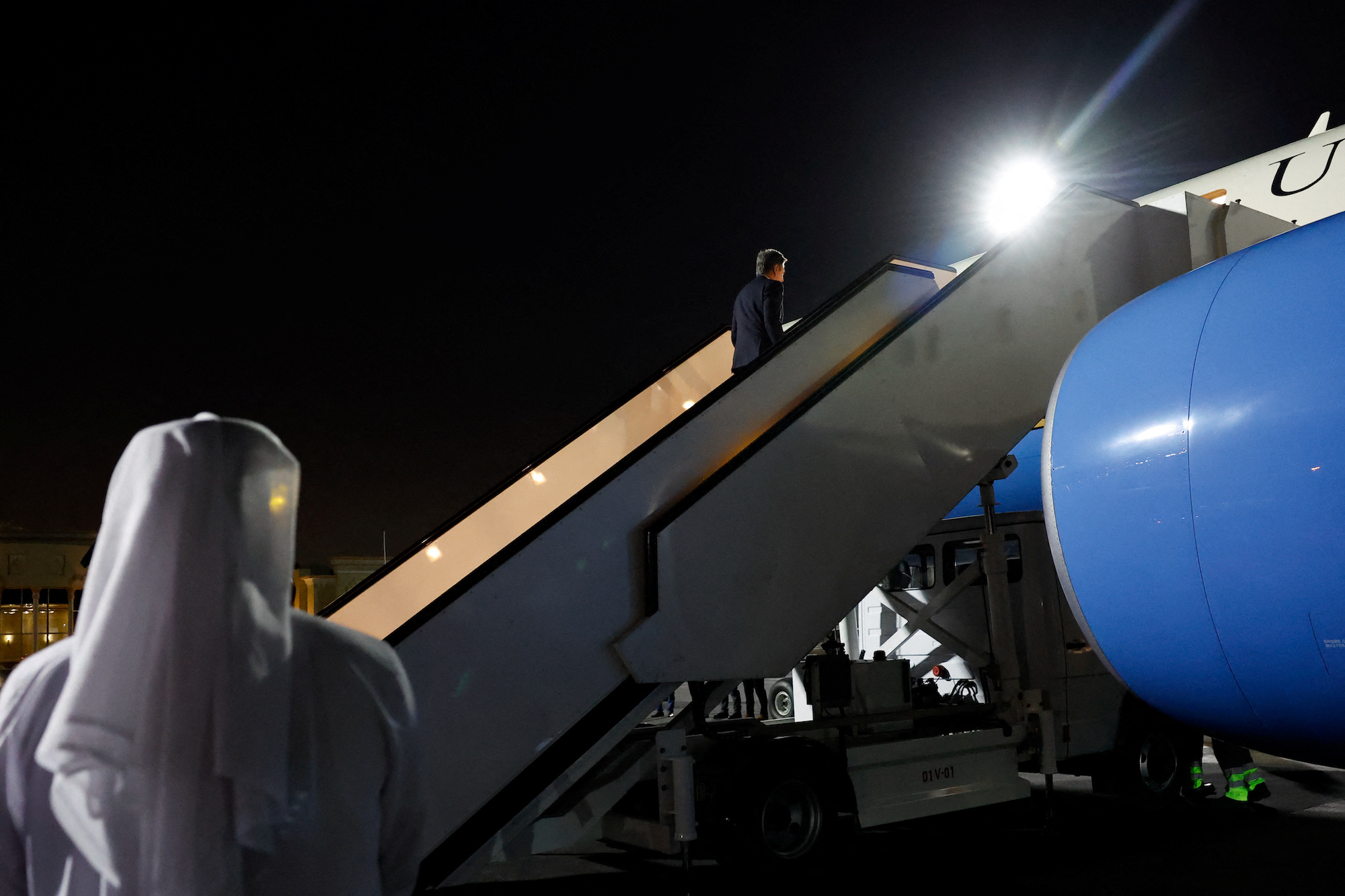
Secretary of State Antony Blinken will be the latest in a long parade of Biden national security officials to meet face to face with the Israeli government when he arrives in Tel Aviv this week for his fifth visit since the October 7 attack by Hamas.
Blinken’s meetings in Israel, one of nine stops on a frenetic, weeklong crisscrossing of the region, are part of what US officials say is a constant effort to stay in touch with – and in front of – Israeli officials in an attempt to keep Israel’s war machine in check as the conflict drags on.
“What happens is you get in a room and say, ‘This is what we need to see,’” a US official told CNN, noting that breakthroughs with Israel have typically occurred after a visit by Blinken or a call from President Joe Biden. Sometimes the Israelis agree with what the US says, the official said, and sometimes they don’t and negotiations ensue.
There are “at least a dozen live issues we are pushing for,” the official told CNN, including protecting Palestinian civilians amid a skyrocketing death toll as well as creating conditions to allow desperately needed aid to get where it is required most.
Shifts by Israeli President Benjamin Netanyahu’s government have been slow and incremental, and US officials have acknowledged that “gaps” remain between what they claim is Israel’s intentions and what has played out.
“We don’t tell Israel what to do, but at the same time, as close allies, these are tough conversations that you can only have as friends where you ask the hard questions,” a second US official told CNN. “You ask, ‘Well, what is your objective? What is your angle? How do you intend to achieve it? What do you think is realistic? Have you considered this, have you considered that?’”
The stakes of Blinken’s fifth trip are high as America’s allies that stood behind Israel at the start of the war but have grown critical as the civilian toll in Gaza rises. Those partners will be looking for evidence Israel is listening to the US, and, as tensions skyrocket in the region, allies are hoping Blinken can ensure Israel has a viable plan to end the war amid concerns over a wider conflict.
“We don’t expect every conversation on this trip to be easy,” Matthew Miller, the State Department spokesperson, said Thursday before the delegation left.
Read more about Blinken's visit to Israel as tensions grow within the region.
Blinken says he's focused on preventing wider conflict in the Middle East. Here's what you should know
From CNN Staff
US Secretary of State Antony Blinken says he’s focused on preventing a wider conflict during a moment of “profound tension” in the Middle East.
He made the comments during a news conference with Qatari Prime Minister and Minister of Foreign Affairs Mohammed bin Abdulrahman Al Thani in Doha on Sunday.
“We have been intensely focused on working to prevent the conflict from spreading. And that is indeed a major focus in what is now my fourth visit to the region since October 7. It was at the heart of discussions yesterday with President Erdogan and Prime Minister Mitsotakis, this morning with King Abdullah of Jordan and in the meetings that I just had with the Emir with the prime minister,” he said.
The Secretary of State also met with the leaders of Jordan this weekend, where the nation's King Abdullah II warned Blinken of the "catastrophic consequences of the continuing war in Gaza” and called for “an end to the dire humanitarian crisis."
King Abdullah "reiterated the importance of the US role in putting pressure for an immediate ceasefire in Gaza" and ensuring "adequate and sustainable delivery of relief, humanitarian, and medical assistance" to Gaza, according to a statement.
Here are the latest updates:
- 3-year-old killed: A three-year-old Palestinian girl was shot and killed when Israeli forces fired at a vehicle that attacked a military checkpoint in the occupied West Bank, according to police and emergency services. Israeli police have called the incident a “vehicular terror attack,” and confirmed that the man and woman in the vehicle, who attacked border police at the Ras Bidu military checkpoint on Sunday were shot and killed.
- Gaza death toll: The Hamas-run Palestinian Ministry of Health in Gaza said on Sunday that at least 22,835 Palestinians have been killed and at least 58,416 have been injured in Gaza since October 7. At least 113 people have been killed and at least 250 have been injured over the past 24 hours, the ministry said.
- Children maimed: More than 10 children on average have lost one or both of their legs every day in Gaza since October 7, while many of the amputations are conducted without anesthetic, the charity Save the Children said in a statement Sunday, referencing statistics released by the United Nations.
- Israel says expelling Palestinians not the plan: The resettlement of Palestinians out of Gaza is “outright, officially and unequivocally” not Israel’s position, Israel’s President Isaac Herzog said on Sunday. Speaking to NBC’s Kristen Walker on Meet the Press, Herzog was asked whether recent comments made by some Israeli cabinet members, who appeared to suggest a forced displacement of Palestinians out of Gaza, reflect the Israeli government's official position. He said it was "absolutely not” the government's position.
- Palestinians killed in West Bank: Seven Palestinian men were killed in an Israeli airstrike near Jenin in the occupied West Bank, the Palestinian Ministry of Health said Sunday. Israel confirmed the strike, calling the men "terrorists." Four of the dead were brothers, according to Palestinian news agency WAFA. The IDF did not say why they had categorized them as "terrorists."
Blinken says the focus of the Qatar talks is on preventing wider conflict
From CNN’s Aileen Graef
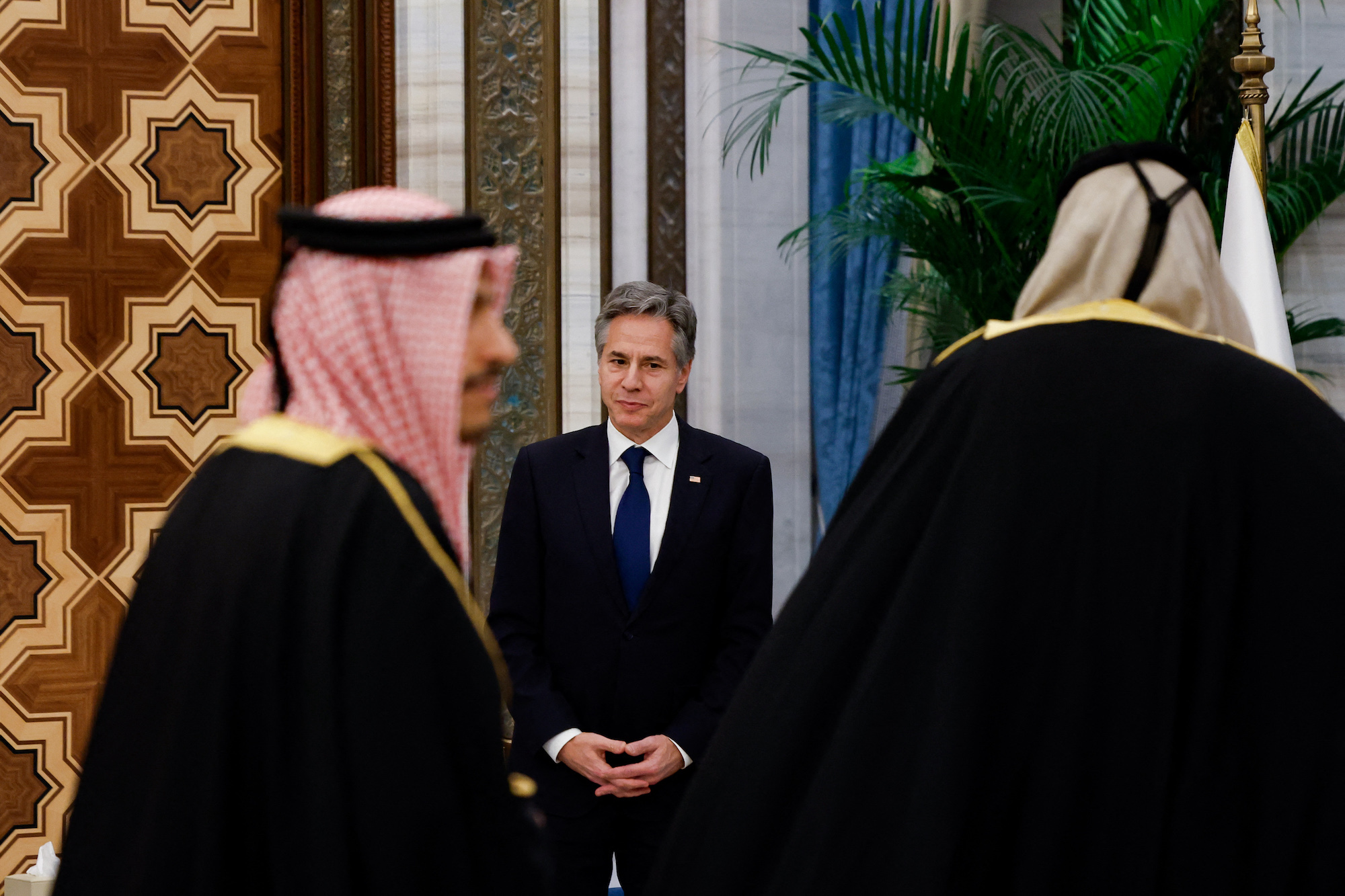
Secretary of State Antony Blinken says he’s focused on preventing a wider conflict during a moment of “profound tension” in the Middle East that could “easily metastasize.”
He made the comments during a news conference with Qatari Prime Minister and Minister of Foreign Affairs Mohammed bin Abdulrahman Al Thani in Doha on Sunday.
“We have been intensely focused on working to prevent the conflict from spreading. And that is indeed a major focus in what is now my fourth visit to the region since October 7. It was at the heart of discussions yesterday with President Erdogan and Prime Minister Mitsotakis, this morning with King Abdullah of Jordan and in the meetings that I just had with the Emir with the prime minister,” he said.
Al Thani also warned of an escalation of conflicts in the region and specifically condemned the recent strikes in Beirut and Syria.
“Recent events that we have witnessed within Lebanon or Syria, unfortunately, are a violation to the sovereignty of those countries and we can see also a continuous violations. Our main target or purpose is to stop this war and to avoid the bigger escalation in the region,” he said.
Al Thani reiterated his calls for a ceasefire and said it would have a “positive implication” on the region.
Blinken skirted a question about whether Arab countries were correct in calling for a ceasefire. He said the US wanted to ensure the October 7 attacks would not happen again, which "means dealing with the threat that Hamas continues to pose,” Blinken said.
“But as we've made clear also from day one, it's imperative that in dealing with this very, very difficult challenge, that it do so in a way that puts a premium on protecting civilians. Making sure that people get the assistance they need,” Blinken added, speaking of Israel’s war against Hamas.
In response to a question about whether the US should make providing weapons to Israel conditional, Blinken said they will continue to make sure any US military assistance is used in accordance with international law.
“Any military assistance we provide – to any country, including Israel – comes with requirements including weapons be used in accordance with international and humanitarian law – the laws of war. And that is something we look at very carefully on an ongoing basis. And we will make sure in this case, as in any other case, that any weapons we provide are used accordingly. That is something we take very, very seriously and will continue to do so,” he said.
3-year-old killed in Israeli police response to vehicle attack at checkpoint in West Bank, authorities say
From CNN's Ibrahim Hazboun
A three-year-old Palestinian girl was shot and killed as Israeli forces fired at a vehicle that attacked a military checkpoint in the occupied West Bank, according to police and emergency services have confirmed.
Israeli police have called the incident a “vehicular terror attack,” and confirmed that the man and woman in the vehicle, who attacked border police at the Ras Bidu military checkpoint on Sunday were shot and killed. The checkpoint is located in the West Bank, about 10 kilometers (6.21 miles) northwest of Jerusalem.
As police shot at the attackers, a three-year-old girl in a different vehicle was struck.
Magen David Adom, from Israel’s emergency medical service, said the unconscious child was brought to their team and pronounced dead after medical examinations.
Two other people were injured, one of whom was a 20-year-old woman. She was treated by paramedics and was fully conscious and in mild condition with limb injuries, Israel’s emergency medical service said.
CNN’s Amir Tal in Jerusalem contributed reporting to this post.
More than 10 children lose one or both legs in Gaza every day, Save the Children says
From CNN's Radina Gigova in London
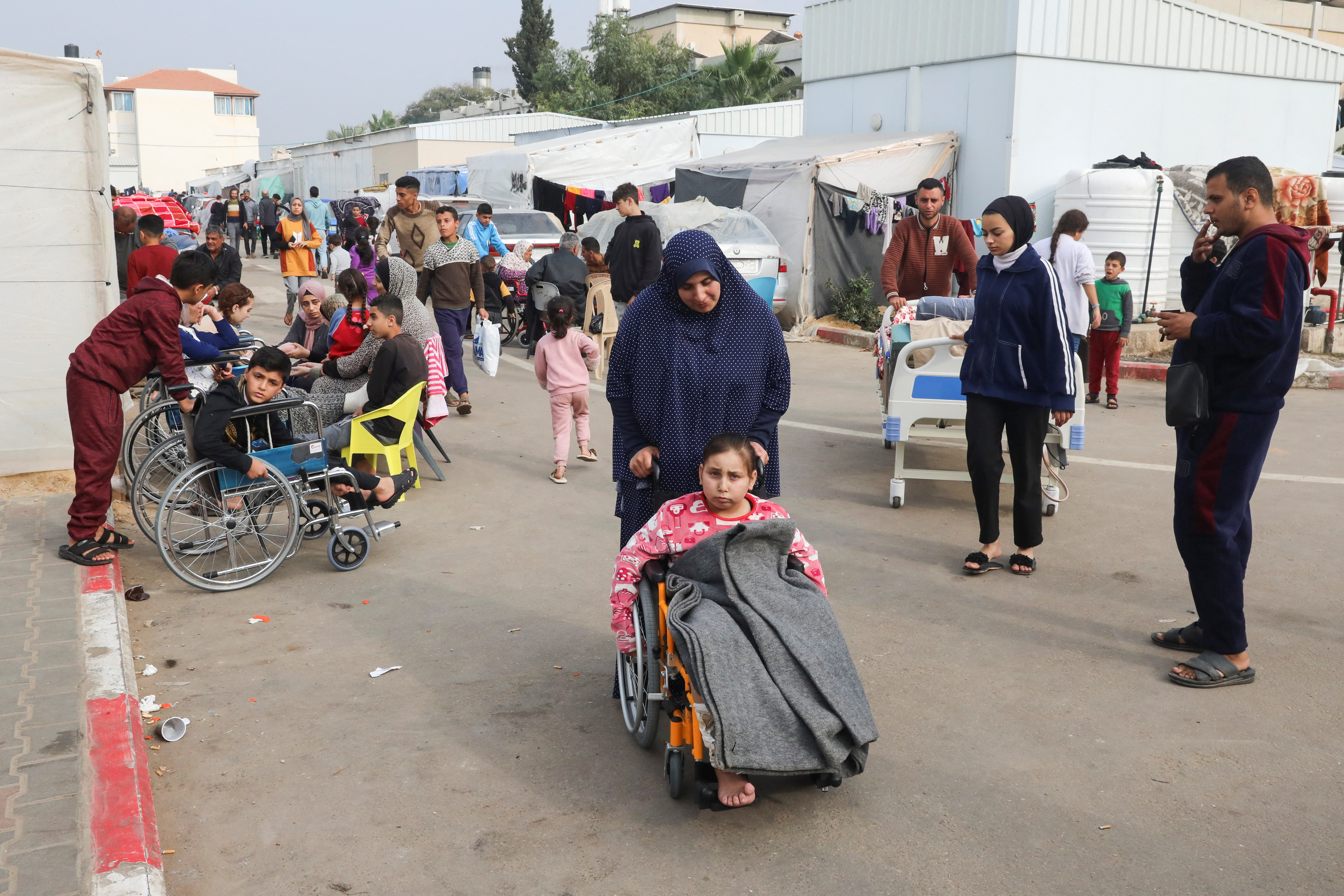
More than 10 children on average have lost one or both of their legs every day in Gaza since October 7, while many of the amputations are conducted without anesthetic, the charity Save the Children said in a statement Sunday, referencing statistics released by the United Nations.
“The suffering of children in this conflict is unimaginable and even more so because it is unnecessary and completely avoidable," said Jason Lee, Save the Children’s Country Director for the occupied Palestinian territory.
"The killing and maiming of children is condemned as a grave violation against children, and perpetrators must be held to account.”
Lee said he has seen "doctors and nurses completely overwhelmed" when children are brought in with blast wounds.
"The impact of seeing children in that much pain and not having the equipment, medicines to treat them or alleviate pain is too much for even experienced professionals. Even in a war zone, the sights and sounds of a young child mutilated by bombs cannot be reconciled let alone understood within the bounds of humanity," Lee said.
In its statement, the charity referenced remarks from UNICEF spokesperson James Elder, who after returning from Gaza, said on December 19 that around 1,000 children in Gaza have lost one or both of their legs since October 7, as hospitals are overwhelmed with children and their parents bearing “the ghastly wounds of war."
Save the Children also referenced a World Health Organization statement in which the agency said many of these operations on children in Gaza were conducted without anesthetic, as the enclave is facing severe shortages of medicines and medical supplies.
The charity said children are nearly seven times more likely to die from blast injuries than adults as they are more vulnerable and sensitive to injuries. "Their skulls are still not fully formed, and their undeveloped muscles offer less protection, so a blast is more likely to tear apart organs in their abdomen, even when there’s no visible damage," Lee said.
“Unless action is taken by the international community to uphold their responsibilities under International Humanitarian Law and prevent the most serious crimes of international concern, history will and should judge us all," Lee said.
Only "a definitive ceasefire" would end "the killing and maiming of civilians" and would enable "desperately needed humanitarian aid" to reach Gaza, including critical medicines for wounded children, he added.
The Israel Defense Forces (IDF) has repeatedly said it is not targeting civilians and that terror group Hamas uses civilian infrastructure, including hospitals, as shields for its attacks on Israel.
The Hamas-run Palestinian Ministry of Health in Gaza said on Sunday that at least 22,835 Palestinians have been killed and at least 58,416 have been injured in Gaza since October 7. At least 113 people have been killed and at least 250 have been injured over the past 24 hours, the ministry said.
CNN is not able to independently verify the numbers released by the health ministry.
Resettlement of Palestinians out of Gaza is "absolutely not" Israel's position, President Herzog says
From CNN’s Catherine Nicholls and Radina Gigova
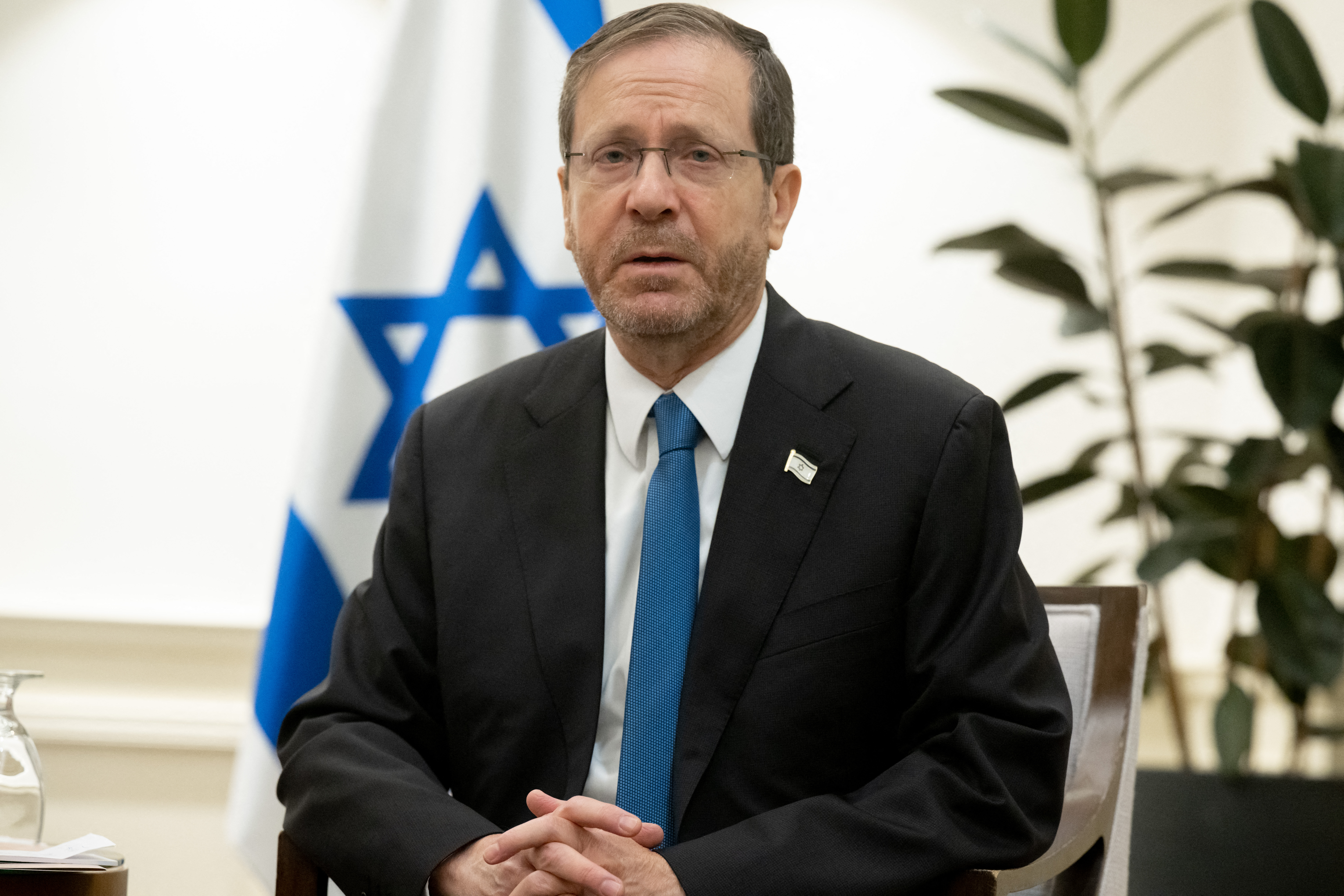
The resettlement of Palestinians out of Gaza is “outright, officially and unequivocally” not Israel’s position, Israel’s President Isaac Herzog said on Sunday.
Speaking to NBC’s Kristen Walker on Meet the Press, Herzog was asked whether recent comments made by some Israeli cabinet members, who appeared to suggest a forced displacement of Palestinians out of Gaza, reflect the Israeli government's official position.
Herzog said this is "absolutely not” the position of the “Israeli government or the Israeli parliament or the Israeli public,” but added, “In a society where free speech is the basis of our national DNA, people can say whatever they want.”
The Israeli president said that his colleagues “were speaking about the wilful leaving of the Gaza Strip, but… I'm saying outright, officially and unequivocally this is not the Israeli position.”
Herzog also spoke of Israel’s determination “to undermine the ability of Hamas to operate terror throughout the world and of course, in Israel.”
He said his country was “utterly grateful” to US President Joe Biden for his “steadfast stand” in supporting Israel, and that US Secretary of State Antony Blinken’s upcoming visit to Israel is “another expression of the huge impact and importance that the United States places as to the direction and the exit from this conflict.”